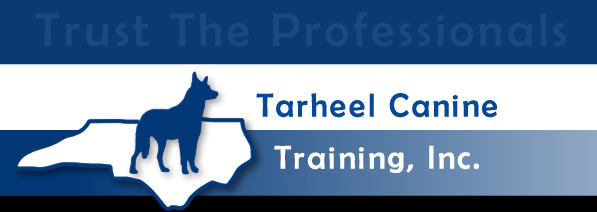People love using analogies as a way to prove an argument, or show the absurdity of your argument. “That’s like throwing bricks in the
Take for example a recent article in a leading police magazine. Out of respect, I won’t name the author here. My goal is to discuss the real issues in choosing between private trainers or a traditional academy. The thrust of the article was to compare private K9 training facilities to the old standby the Public 16 week police K9 course run by police officers dedicated to a training staff.
In the article the private facilities are referred to as “McTrainers” in an attempt to associate the product of private academies with “fast food” quality, where I suppose we are to assume the opposite comparison, that the 16 week academy course with green dogs and unskilled handlers would in fact produce a gourmet meal. Now, I have seen great dogs produced in both environments, so I don’t think generalizing is necessarily a useful activity. In fact I found the article to be divisive and completely to have missed the point of steering administrators towards the real issue in selecting a training program: quality training so that they can employ productive and well informed K9 units.
Considering that the author runs one of the 16 week academies, it seems to be rather thinly veiled advertisement to police administrators to send people his way, rather than to private companies. In today’s world with competition at an all time high, we are all scrambling to justify our existence. One approach I suppose would be by trying to keep your job secure by trashing all the competition, as this article came across. However, one just might take another route and strive to produce the best product and service possible and make he best guarantees so that you are the most competitive supplier in the market. This is the approach I try to take every day as the CEO of Tarheel Canine.
Now, that said and being that I run a private training company, I took a certain amount of offense to the broad brush used to paint all private companies as producing a rushed and therefore poor quality product. Let’s be fair, there are poorly trained police dogs everywhere, certainly not only from private companies, either. I don’t necessarily believe that the type of academy you go through, whether it is a 16 week academy with green handlers starting with green dogs, or with a private company is really the issue.
In the end, I believe the different type of courses are about equally as likely to produce a solidly trained dog, as long as the trainers in charge are good ones. That, in my opinion, is the real issue, not the structure of the training course, but rather the content of the training course. This is the point that the article completely misses!
Many people believe that 4 weeks isn’t a long time to be with your dog before going out on the street. Yet in the end, in a 16 week course, by the time the dog has most of his behaviors fully trained to a point where you can actually practice scenarios as you would see them on the street (traffic stops, building searches, etc.), you are about equivalent in terms of spending time with a trained dog practicing deployments. The last 4 maybe 5 weeks in a traditional course are the crucial weeks for deployment, and putting it all together. In the end it is all just about equivalent.
I think the real issue has to do with the trainers that are training the dogs and running the classes, not how the classes are structured. I have seen a lot of very nicely trained dogs come from traditional academies, and I believe we also put out very solid trained dogs in our program at TK9. In the end it comes down to convenience. Some agencies cannot afford to lose an officer for 16-20 weeks, so a private company allows them to get a K9 where they may not be able to if this option is not available. Further, making the right choice boils down to quality. Are the dogs coming out of whatever academy or private trainer you are looking at producing for the agencies that have them? If they are, you are going in the right direction, no matter how the training class may be structured.
There are a lot of trainers who have popped up after 9/11 to get their hands into the profit opportunities, no doubt. There are bad trainers out there in private practice. But there are also some of the best trainers in the country who are in private practice out there selling trained dogs to the police. If you are thinking about buying a K9, do your research. Demand references, and a lot of them. Call the references. Also, dont assume that because a particular class is run by police officers doing the training, that the product is good. Just like any trainers, there are good ones and poor ones who work for police departments too. Check with other local agencies who have been through the academies to give you a reference, and to give you an opinion on the quality of their dog. Is he utilized? Does he locate people and contraband outside of training?
Another issue: Ask trainers for their guarantees on their dogs if you are going private, and if you are going to an academy make sure the dog brokers that the academy uses are reputable and will stand behind their guarantees. Check the wording of guarantees.
Be advised, if you go through a traditional academy and your dog passes the certification, he is forever more your problem if you have a training or productivity issue that the trainers can’t fix. If you buy from a private trainer and the dog becomes a problem later on, you may have recourse if the trainer provides a performance guarantee, as we do at TK9 (lifetime performance guarantee).
I suppose my conclusion is this: When choosing between a private trainer and a traditional academy, pay attention to the important issues, such as expertise (number of years training is not necessarily indicative – if you have pedaled the same poor skills for 20 years), and the productivity of the dogs coming out of the training. Look to references, and find out how productive the dogs are for the agencies that are running them. Once you are comfortable with that, then ask yourself which type of academy fits your agency best, from a manpower perspective, and you will in the end make a good decision.

